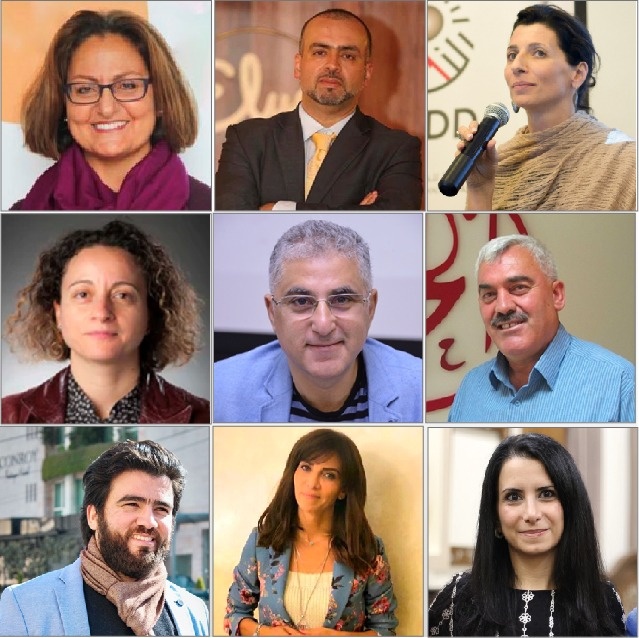As part of the Question of Palestine (QoP) Program, the Arab Renaissance for Democracy and Development (ARDD) held a webinar titled “Academia and Civil Society: A Necessary Partnership” on May 4, 2021, to celebrate the signing of a memorandum of understanding (MoU) with Birzeit University in Palestine.
The MoU heralds a new partnership that seeks to enhance educational activities and joint research in areas of common interest, building on the strength and capabilities of the two institutions to advance knowledge about issues related to justice, human rights, governance, and development. The partnership is expected to come up with a clear plan of action on the Question of Palestine, to help promote better issues pertaining to Palestinian refugees, issues that remain “crucial, regionally and internationally”, but “nonetheless are often neglected in the political discourse”, according to QoP Program coordinator Francesca Albanese and Professor of Public Law at Birzeit University Dr. Asem Khalil, who presented the MOU as an important and good example of partnership between academia and civil society.
Such partnership was also commended by Senior Program Specialist in the Democratic and Inclusive Governance Program at the Canadian Center for International Development Research Roula Al-Rifai, the event’s moderator, who said: “There is a need to renegotiate the social contract with governments in the region, and here comes the role of the partnership between ARDD and Birzeit University, as knowledge-based institutions, who endeavor to develop the knowledge-based advocacy and influence policies. This alliance is a reflection of global awareness of the importance of joining forces in order to reach the desired change at the communities and policies’ levels.”
The first-panel discussion, held under the title “Academia as a Port of Call for Civil Society?”, discussed the experience of key universities that engage with Civil Society Organizations (CSOs) in the MENA region. Taking part in these discussions were Professor of Sociology at the American University of Beirut Dr. Sari Hanafi, Director of Al Haq human rights NGO Shawan Jabarin, and Professor Khalil.
According to Hanafi, the gap between local and international knowledge can and should be filled by a closer partnership between academia and CSOs, especially in the Arab World, taking into account the region’s specificity. He said that improving conditions for knowledge production in the Middle East remains key to helping the region move from the “periphery of global knowledge production to the center”.
Jabarin highlighted Al-Haq’s engagement with academic institutions through providing feedback and recommendation on their research, noting that new graduates struggle to apply their academic background in real life or to see the connection between theoretical knowledge and practical reality.
Prof. Khalil said the university’s role is not only to produce knowledge but also to shape national awareness; he stressed that the university is a place to raise questions, not only give “prepackaged answers”.
The panel “Encouraging Academic and Civil Society Partnership: Unleashing Potential or Complicating Matters?”, discussed the regional and international experience of key donors, partners, and universities; taking part in it were MENA Senior Policy Advisor at UNHCR Shaden Kallaf, Senior Lecturer at Bath University Dr. Rana Jawad, GIZ advisor Ismail Siyam and ARDD CEO Samar Mohareb.
Khallaf said the knowledge produced in Arabic on displacement movements in the Middle East is limited and that UNHCR works on building refugees’ and young researchers’ capacities by establishing digital platforms with educational resources. She also stressed the importance of including refugees in the research and knowledge produced about them, as per the “nothing about us without us” principle.
Stressing the importance of knowledge produced in the region, Jawad said that the University of Bath has been running a series of “policy labs” on social protection in the region, in collaboration with ARDD, among other stakeholders from various Arab countries, bringing together, in the region, experts and academics of different backgrounds. Jawad emphasized the importance of social analysis and studies in the MENA region and the need for Arabic production in this field.
Siyam underlined the importance of bridging the gap between the work done by CSOs, academia and decision-makers, and said that research needs to translate into actionable recommendations. He said that published research is not utilized enough to achieve social and policy reforms, adding that GIZ is working on strengthening “both horizontal and vertical networking”.
Mohareb said that the ARDD-Birzeit University partnership is an important development, essential to “solidifying the knowledge and the experience of CSO away from commercialization”. She also said that the partnership will have an impact on the ground since it is based on the “3Cs approach” promoted by ARDD: contact, creative production and commitment.
In the concluding remarks, Albanese said that CSOs like ARDD contribute to the formation of national consciousness by giving space to the voiceless to be heard, the invisible to be seen, the neglected to seek justice and enjoy dignity, and stressed that without the support of others, including the academia, their path becomes longer and uncertain, and that is why “the partnership ARDD-Birzeit University is something to celebrate”.


